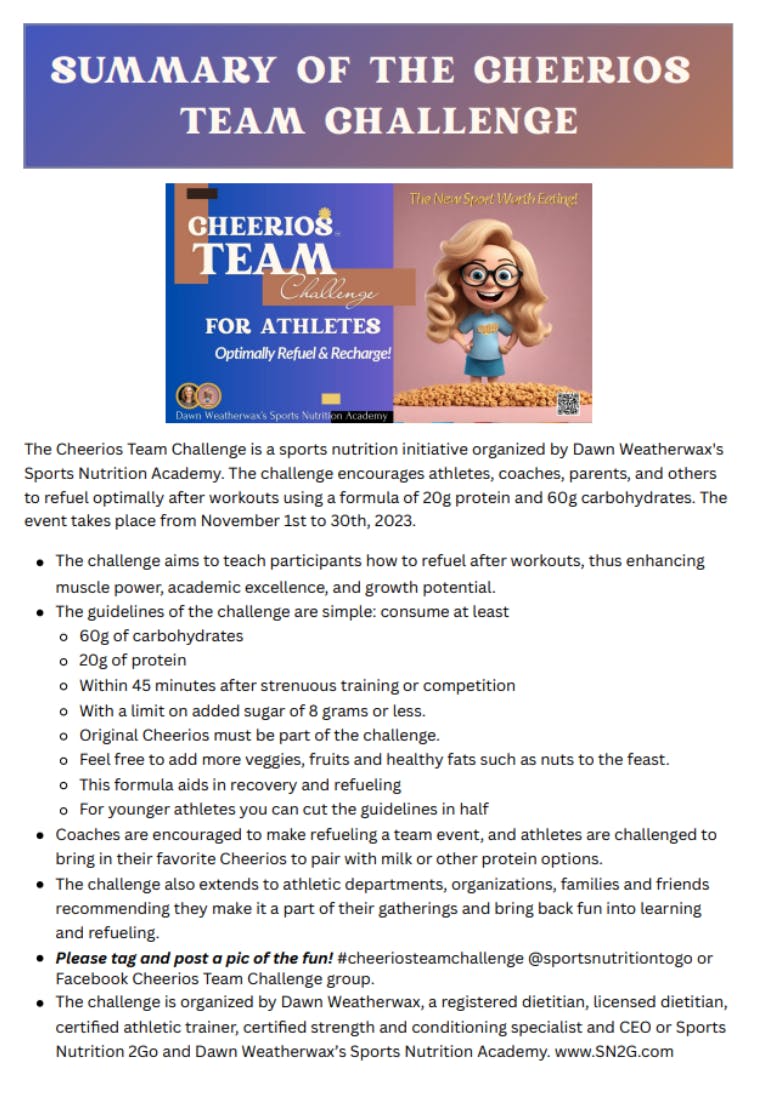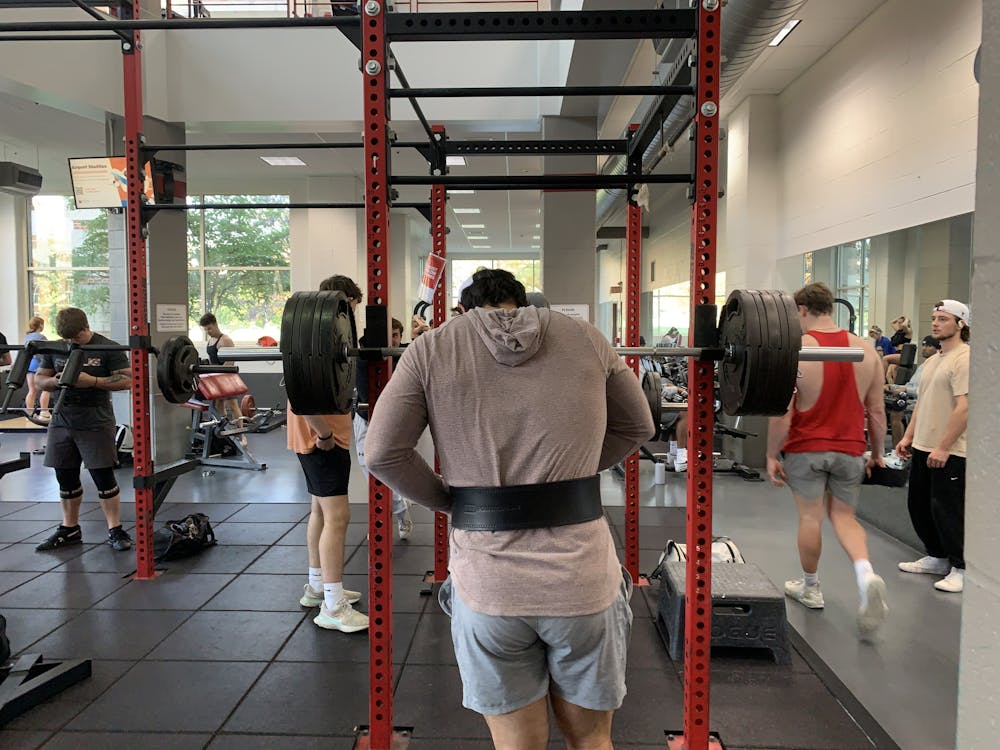For senior biology-premedical studies major Brittany Prater, a student at Miami University, going to the gym is a way to relieve stress. It’s a necessary part of her day.
“I have to come here,” Prater said. “It helps me.”
Prater’s fitness journey has included dietary changes, but she knows what’s most important. To gain muscle, she eats high protein foods spread throughout her day and stays away from red meats, preferring to stick to foods like salmon and turkey which have healthier fats. She eats sweet potatoes to get good carbs in.
Senior real estate major Kevin Kaufman has a slightly different philosophy for eating to build muscle, but he agrees that protein is key.
“For me, I track all my food,” Kaufman said. “Calories in and calories out is what’s going to determine if you’re gaining weight … Hitting one gram of protein to one-and-a-quarter grams of protein per one pound of body weight is going to guarantee that you’re maintaining your muscle and that you’re gaining if you’re in a caloric surplus.”
Professionals in sports nutrition agree that a healthy lifestyle is essential for college students looking to build muscle and stay fit.
Paul Reidy is an assistant professor of kinesiology, nutrition and health. He stressed the importance of speaking to a registered dietitian, the ultimate authority of all things nutrition.
“A registered dietician is who everyone should look to as the ultimate source and authority on nutrition” Reidy said.
Dawn Weatherwax is a registered dietitian who specializes in sports nutrition. She’s also a certified strength and conditioning trainer who founded a business helping athletes eat right for peak performance.
Weatherwax says that college-aged males, whose bodies are still developing, can gain about a half-pound to one pound of lean weight a week if they do nutrition, training and recovery the right way. The female body develops earlier than the male body, but college-aged women can still put on up to a half-pound of lean weight per week.
When trying to build muscle, both Weatherwax and Reidy agreed the most important thing is consuming more calories than you burn. Muscle building requires a lot of energy, and Reidy recommends at least 500 extra calories per day.The next important thing is protein. When you eat protein it allows your body to undertake protein synthesis, which is what builds muscle.
“The rule of thumb is … one gram of protein per pound of lean weight,” Weatherwax said. “Lean weight is everything but fat.”
Enjoy what you're reading?
Signup for our newsletter
Both experts stressed that spreading out your protein intake in a day is necessary. After eating protein, there’s only a three or four hour window where your body can synthesize it. Your body can only synthesize so much protein at a time.
Both Reidy and Weatherwax say the best way to maximize muscle growth is to spread your protein intake out over five “meals” a day, a meal every two to four waking hours. Skipping breakfast, Reidy said, is a missed opportunity to start your day right with some protein synthesis.
Some of the healthiest sources of protein include white-fleshed fish, plain greek yogurt, white meat poultry and lean beef.
Despite its reputation, peanut butter isn’t a great source of protein, but it is a source for healthy fats, which help keep you satiated, Reidy said.
“Make sure they’re heart-healthy fats,” Reidy said. “Like you’d find in nuts and avocados. Limit saturated fats because they can cause health issues.”
Weatherwax said it’s important to fuel your muscles with complex carbohydrates and healthy fats. Fiber is important too, and she recommends athletes aim for five to seven servings of non-starchy vegetables per day, including lettuce, cucumbers mushrooms, not corn, peas and potatoes.
“After a strenuous workout, within 30 to 45 minutes, they want at least 20 grams of protein and 45 to 60 grams of carbs,” Weatherwax said.
Weatherwax is currently sponsoring “The Cheerios Team Challenge,” which encourages athletes to refuel properly after workouts, especially through eating regular Cheerios with milk or other protein options. According to Weatherwax, regular Cheerios can lower cholesterol and decrease risk for heart disease, as it is made with 100% natural, whole grain oats.

The Cheerios Team Challenge is meant to teach people how to properly refuel their bodies after a workout.
Staying hydrated is important for overall wellness. Water is best, but other non-sugary, calorie-free drinks are OK too. Examples include unsweetened teas, milk or even an occasional diet soda. At least 3,000 milligrams of sodium a day are also necessary to allow your cells to absorb that water correctly.
“Take your weight and cut that number in half,” Weatherwax said. “That’s how many fluid ounces you should be getting per day. Then add 10 to 20 fluid ounces per hour of physical activity … if you’re not carrying a fluid bottle with you everywhere, you’re not properly hydrated.”
Sleep is important too. During sleep is when the body does most of its tissue repair and growth. A minimum of eight hours a night is ideal.
Eating perfectly isn’t possible for most college students, but every meal counts.
“College students I interact with are so busy, so stressed,” Reidy said. “Take more time to eat. Take more time to prep your food. Enjoy your life. Do less and enjoy more.”




